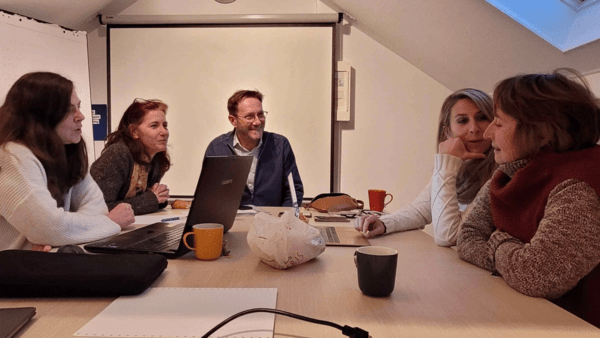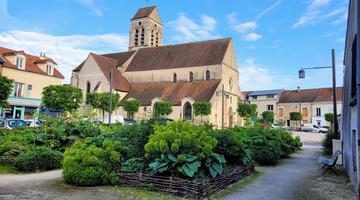Fostering Sustainable Fashion: EcoFashion 94's Second Design Thinking Workshop
In the inspiring setting of the Co-Working space in Sucy-en-Brie, the EcoFashion 94 network continued its commitment to sustainable fashion at its second Design Thinking workshop. It took place on 5 December and was organised by Val-de-Marne en Transition's social experiment in the circular economy.
This ambitious workshop took place from 2 pm to 8 pm, bringing together passionate players determined to rethink the fashion industry in the Val-de-Marne département.
The workshop was marked by a palpable creative excitement. Participants were able to dive into a sea of post-its, fuelled by 180 ideas from previous brainstorming sessions. These ideas were grouped by domain and examined in detail to identify the most promising prototypes.
The group was also honoured to welcome a new member, Amélie Moreau, a talented creator of the company Le Paul Sud. Together, they explored new perspectives, giving rise to a third area of prototypes: "Repairable Creation".
The workshop then split into two groups, each focusing on a specific area: the valorisation of resources and the promotion of repair.
In the first group, led by Jean-Paul, EcoFashion 94 project manager with Sarah, manager of the Sucy resource centre, the emphasis was placed on improving the customer experience in the resource centres (so-called ‘ressourceries’). An in-depth reflection was carried out to identify the most relevant avenues and define concrete prototypes.
The second group, made up of creative and repair professionals and a sustainable fashion enthusiast, set about developing solutions to encourage citizens to repair their clothes rather than throw them away. The objective is clear: change behaviour to favour repairs rather than purchasing new items.
At the end of this intensive workshop, new avenues of reflection emerged, and prototypes were defined for each area. These prototypes are to be tested in future workshops as participants continue the collaborative work to shape the future of fashion in Val-de-Marne.
This article is in large parts a translation of an article originally appearing on EcoFashion 94’s website EcoFashion94.fr.
On this website it's been backdated to its original time of publication to keep the timeline for the readers.
Related Green Deal Priorities
Related localities


CONTACT
For further details please contact co-leads Professor Chris Foulds (chris.foulds@aru.ac.uk) and Professor Rosie Robison (rosie.robison@aru.ac.uk).

This project has received funding from the European Union’s Horizon 2020 research and innovation program under grant agreement No 101036640. The sole responsibility for the content of this website lies with the SHARED GREEN DEAL HAS project and does not necessarily reflect the opinion of the European Union.

